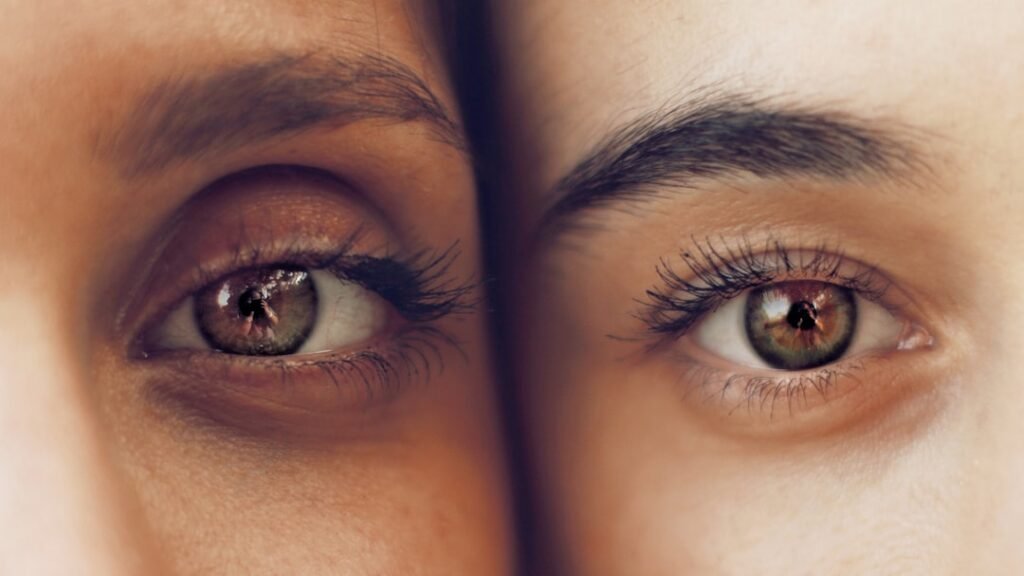When we think about skin cancer, we often picture it affecting individuals with lighter skin tones. However, it is crucial for us to understand that skin cancer can affect everyone, including those with darker skin. The risk factors for skin cancer in Black people are multifaceted and can include genetic predispositions, environmental influences, and lifestyle choices.
While melanin provides some level of protection against ultraviolet (UV) radiation, it does not render us immune to the disease. We must recognize that factors such as family history, exposure to harmful chemicals, and even certain medical conditions can increase our risk. Moreover, we should consider the role of socioeconomic status in our understanding of skin cancer risk.
Many of us may not have access to adequate healthcare or education about skin health, which can lead to a lack of awareness regarding the importance of regular check-ups and screenings. Additionally, cultural beliefs and practices may influence how we perceive our skin health. By acknowledging these risk factors, we can better equip ourselves to take proactive measures in preventing skin cancer.
Key Takeaways
- Skin cancer risk factors in black people include genetics, environmental factors, and delayed diagnosis and treatment.
- Sun protection is crucial for people with darker skin tones to prevent skin cancer and other sun-related skin damage.
- The myth that black people are immune to skin cancer is debunked, as they can still develop the condition, albeit at lower rates than other ethnic groups.
- Skin cancer can manifest differently in black skin, making it important for individuals and healthcare providers to be aware of these differences.
- Genetics play a role in skin cancer risk for black individuals, highlighting the need for personalized screening and prevention strategies.
The Importance of Sun Protection for People with Darker Skin Tones
While it is true that darker skin offers some natural protection against UV rays, this does not mean we are exempt from the need for sun protection. We must emphasize the importance of using sunscreen, wearing protective clothing, and seeking shade during peak sun hours. Many of us may underestimate the effects of sun exposure, believing that our skin is less susceptible to damage.
However, prolonged exposure can lead to skin issues, including premature aging and an increased risk of skin cancer. In addition to sunscreen, we should also consider other protective measures. Wearing wide-brimmed hats and sunglasses can shield our faces and eyes from harmful rays.
It is essential for us to educate ourselves about the different types of sunscreens available and choose one that suits our skin type. By incorporating these practices into our daily routines, we can significantly reduce our risk of developing skin cancer while promoting overall skin health.
Debunking the Myth that Black People are Immune to Skin Cancer

One of the most pervasive myths surrounding skin cancer is the belief that Black people are immune to the disease. This misconception can be dangerous, as it may lead us to neglect our skin health and forgo necessary screenings. We must understand that while the incidence of skin cancer may be lower in Black individuals compared to those with lighter skin, it does not mean we are invulnerable.
In fact, studies have shown that when Black individuals do develop skin cancer, it is often diagnosed at a later stage, which can lead to poorer outcomes. By debunking this myth, we can encourage open conversations about skin health within our communities. It is vital for us to share accurate information and challenge stereotypes that perpetuate ignorance about skin cancer risks.
We should advocate for education that emphasizes the importance of regular check-ups and self-examinations, regardless of our skin tone. By doing so, we can empower ourselves and others to take charge of our health.
How Skin Cancer Can Manifest Differently in Black Skin
Skin cancer can present itself in various forms, and it is essential for us to recognize that its manifestations may differ in Black skin compared to lighter skin tones. For instance, while basal cell carcinoma and squamous cell carcinoma are more common in lighter-skinned individuals, melanoma can occur in unexpected areas on darker skin. These areas may include the palms of the hands, soles of the feet, or under the nails—places that are often overlooked during self-examinations.
Additionally, the appearance of lesions or growths on darker skin may not always resemble the typical signs associated with skin cancer. We must be vigilant in monitoring any changes in our skin, such as new moles or changes in existing ones. Understanding how skin cancer can manifest differently allows us to be more proactive in seeking medical attention when necessary.
By educating ourselves about these differences, we can better advocate for our health and ensure early detection.
The Role of Genetics in Skin Cancer Risk for Black Individuals
Genetics plays a significant role in determining our susceptibility to various diseases, including skin cancer. For Black individuals, certain genetic factors may influence how our bodies respond to UV exposure and other environmental risks. Research has shown that specific gene mutations can increase the likelihood of developing skin cancer, regardless of melanin levels.
This highlights the importance of understanding our family history and discussing any relevant genetic predispositions with healthcare providers.
Furthermore, we should consider how genetics interacts with environmental factors.
For instance, individuals with a family history of skin cancer may need to be more vigilant about sun protection and regular screenings.
By recognizing the interplay between genetics and environmental influences, we can take a more comprehensive approach to our skin health. This awareness empowers us to make informed decisions about our lifestyle choices and seek appropriate medical advice when necessary.
Recognizing the Signs and Symptoms of Skin Cancer in Darker Skin Tones

Challenges in Identifying Skin Cancer in Darker Skin Tones
Common indicators such as changes in moles or unusual growths may not always be as apparent on darker skin as they are on lighter skin.
What to Look for in Darker Skin Tones
Therefore, it is essential for us to familiarize ourselves with what constitutes a concerning change.
We should pay close attention to any new spots or changes in existing moles, particularly if they become asymmetrical or exhibit irregular borders.
Additionally, we must be aware that skin cancer can manifest as dark patches or lesions that may not resemble traditional symptoms.
Empowering Ourselves through Education
By educating ourselves about these signs and symptoms, we can empower ourselves to seek medical attention promptly if we notice any concerning changes.
The Impact of Delayed Diagnosis and Treatment for Skin Cancer in Black People
Delayed diagnosis and treatment of skin cancer can have severe consequences for Black individuals. Unfortunately, due to a lack of awareness and misconceptions about our susceptibility to the disease, many of us may not seek medical attention until it is too late. This delay can result in more advanced stages of cancer at diagnosis, leading to poorer prognoses and increased mortality rates.
Moreover, systemic barriers within healthcare systems can exacerbate these delays. We may face challenges such as limited access to dermatologists or cultural biases that affect how our concerns are perceived by healthcare providers. It is vital for us to advocate for timely screenings and treatment options while also pushing for systemic changes that address these disparities.
By raising awareness about the importance of early detection within our communities, we can work towards reducing the impact of delayed diagnosis on our health outcomes.
The Need for Increased Awareness and Education about Skin Cancer in the Black Community
Increased awareness and education about skin cancer within the Black community are essential for improving health outcomes. Many of us may not receive adequate information about the risks associated with skin cancer or how to protect ourselves effectively. By prioritizing education initiatives that focus on prevention and early detection, we can empower ourselves and others to take charge of our health.
Community outreach programs can play a significant role in disseminating information about skin cancer risks and prevention strategies tailored specifically for Black individuals. Workshops, seminars, and social media campaigns can help raise awareness about the importance of regular screenings and self-examinations. By fostering an environment where open discussions about skin health are encouraged, we can break down barriers and promote a culture of proactive health management.
Overcoming Barriers to Accessing Skin Cancer Screening and Treatment for Black Individuals
Accessing skin cancer screening and treatment can be challenging for many Black individuals due to various barriers. These barriers may include financial constraints, lack of insurance coverage, or limited availability of healthcare providers who understand our unique needs. Additionally, cultural stigmas surrounding healthcare may prevent some individuals from seeking help when they notice concerning symptoms.
To overcome these barriers, we must advocate for equitable access to healthcare services within our communities. This includes pushing for policies that expand insurance coverage for preventive screenings and treatments related to skin cancer. Furthermore, we should work towards increasing the representation of Black healthcare professionals who can provide culturally competent care and address the specific concerns faced by our community.
The Importance of Regular Skin Checks and Self-Examinations for Black People
Regular skin checks and self-examinations are vital components of maintaining our overall health as Black individuals. By incorporating these practices into our routines, we can become more attuned to changes in our skin and identify potential issues early on. We should set aside time each month to examine our bodies thoroughly, paying close attention to areas that are often overlooked.
During self-examinations, we should look for any new growths or changes in existing moles while also being mindful of any unusual patches or discoloration on our skin. If we notice anything concerning or out of the ordinary, it is essential to seek medical advice promptly. By prioritizing regular checks and self-examinations, we empower ourselves to take control of our health and advocate for timely interventions when necessary.
Empowering Black Individuals to Advocate for Their Skin Health and Wellness
Empowering ourselves as Black individuals to advocate for our skin health is crucial in combating the stigma surrounding skin cancer within our communities. We must educate ourselves about the risks associated with skin cancer while also encouraging others to do the same. By sharing information and resources with friends and family members, we create a supportive network that prioritizes health awareness.
Additionally, we should feel confident in voicing our concerns when seeking medical care. It is essential for us to ask questions about our risk factors and advocate for appropriate screenings based on our individual needs. By taking an active role in our healthcare journey, we not only improve our own outcomes but also inspire others within our community to prioritize their health as well.
In conclusion, understanding the complexities surrounding skin cancer in Black individuals is vital for promoting awareness and prevention within our communities. By recognizing risk factors, debunking myths, advocating for education, and empowering ourselves through regular check-ups and self-examinations, we can take significant strides toward improving health outcomes related to skin cancer among Black people. Together, we have the power to create a culture that prioritizes skin health and wellness for all.
If you are interested in learning more about hair-related procedures, you may want to check out this article on hair transplant safety. This article discusses the safety of hair transplant procedures and what to consider before undergoing this treatment. It provides valuable information for those considering hair restoration options.
FAQs
What is skin cancer?
Skin cancer is the abnormal growth of skin cells, most often caused by exposure to ultraviolet (UV) radiation from the sun or tanning beds. There are different types of skin cancer, including melanoma, basal cell carcinoma, and squamous cell carcinoma.
Can Black people get skin cancer?
Yes, Black people can get skin cancer. While it is less common in people with darker skin tones, it can still occur. It is important for people of all skin tones to protect their skin from UV radiation and to be aware of the signs of skin cancer.
What are the risk factors for skin cancer in Black people?
Risk factors for skin cancer in Black people include a family history of skin cancer, a personal history of skin cancer, exposure to UV radiation, and certain medical conditions or medications that suppress the immune system.
What are the signs of skin cancer in Black people?
The signs of skin cancer in Black people are similar to those in people with lighter skin tones and may include changes in the size, shape, or color of a mole or pigmented area of the skin, a sore that does not heal, or a new growth on the skin.
How can Black people protect themselves from skin cancer?
Black people can protect themselves from skin cancer by seeking shade, wearing protective clothing, using sunscreen with a high SPF, and avoiding tanning beds. It is also important to perform regular skin self-exams and to see a dermatologist for a full-body skin exam at least once a year.


